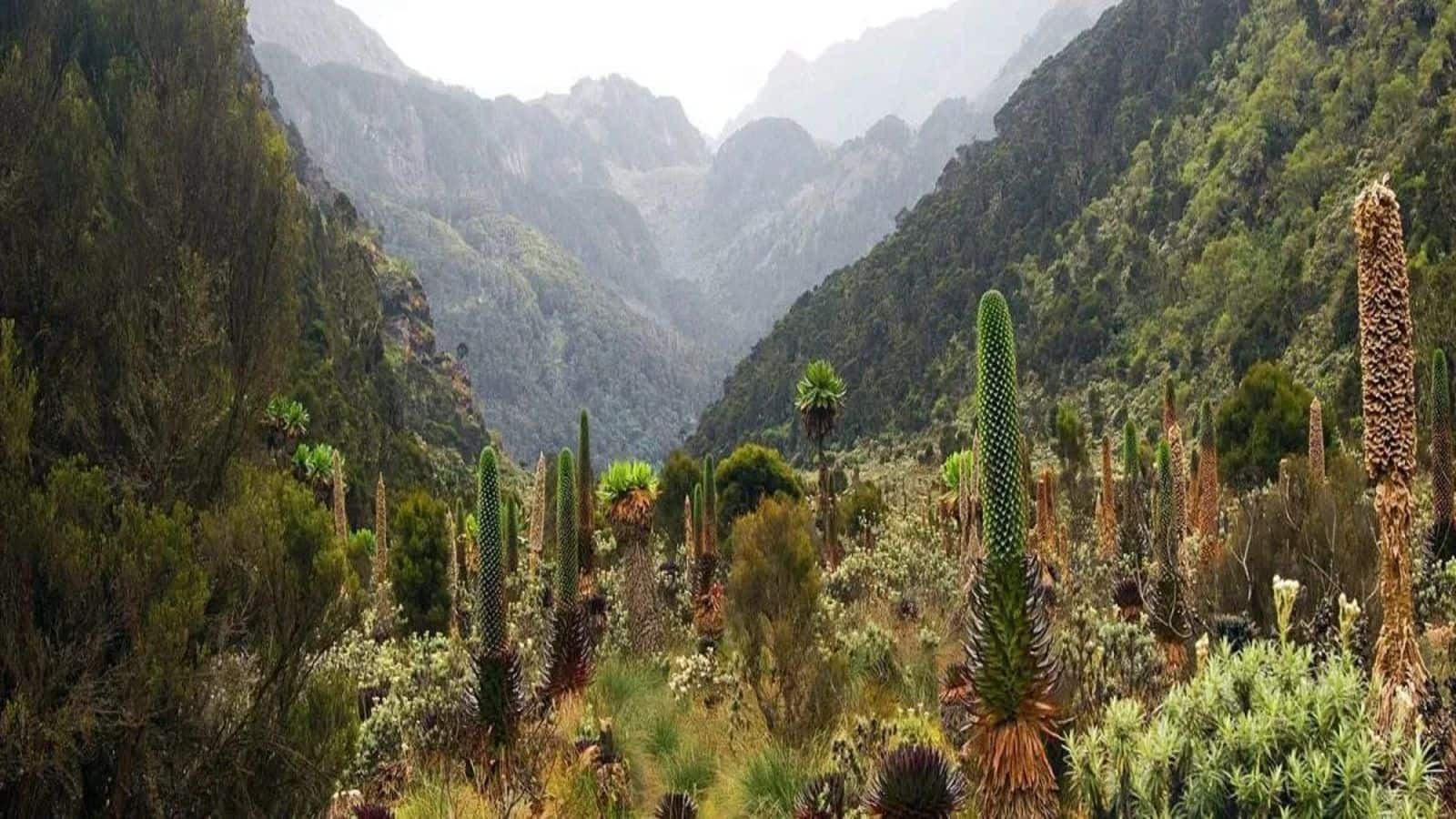
Trek the mystical Rwenzori Mountains in Uganda
What's the story
The Rwenzori Mountains in Uganda, celebrated for their unique flora and fauna, are a top-tier hiking destination. These mountains, also known as the "Mountains of the Moon," boast stunning glaciers and offer challenging treks. They promise an extraordinary adventure for those keen to discover one of Africa's most magnificent and lesser-known trails. This range is a treasure for explorers seeking an exceptional experience.
Preparation
Plan your trek wisely
Before embarking on your journey through the Rwenzori Mountains, it's crucial to plan. The best time to visit is during the dry seasons from June to August and December to February. Trekkers should be in good physical condition and must pack appropriately for cold, wet, and muddy conditions. Hiring a local guide is not only recommended but necessary for navigating the challenging terrain.
Nature watch
Embrace the unique flora and fauna
As you trek through various altitudes, you'll encounter diverse ecosystems ranging from tropical rainforests at lower elevations to alpine meadows higher up. The mountains are home to several endemic plant species like giant lobelias and groundsels that seem out of this world. Keep an eye out for wildlife such as chimpanzees, elephants, and unique bird species like the Rwenzori turaco.
Summit attempt
Conquer Margherita Peak
For those seeking the ultimate challenge, Margherita Peak at 5,109 meters (16,763 feet) offers an exhilarating climb. It's the highest point in Uganda and requires technical climbing skills as you approach the summit. This part of your trek will be demanding but reaching the top provides a sense of accomplishment along with breathtaking views across Congo and Uganda.
Community engagement
Immerse yourself in local culture
The experience in the Rwenzori Mountains isn't just about nature; it's also an opportunity to engage with local communities living at the foothills. Many tours include visits to Bakonzo villages where travelers can learn about traditional ways of life, enjoy local cuisine made from fresh mountain ingredients, and participate in community projects that support sustainable tourism.